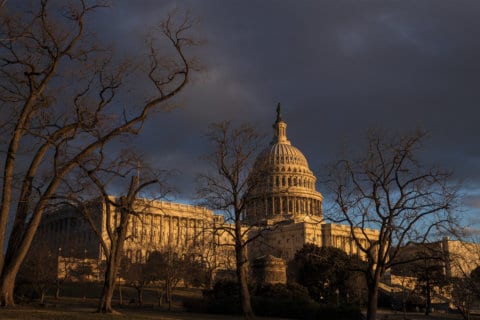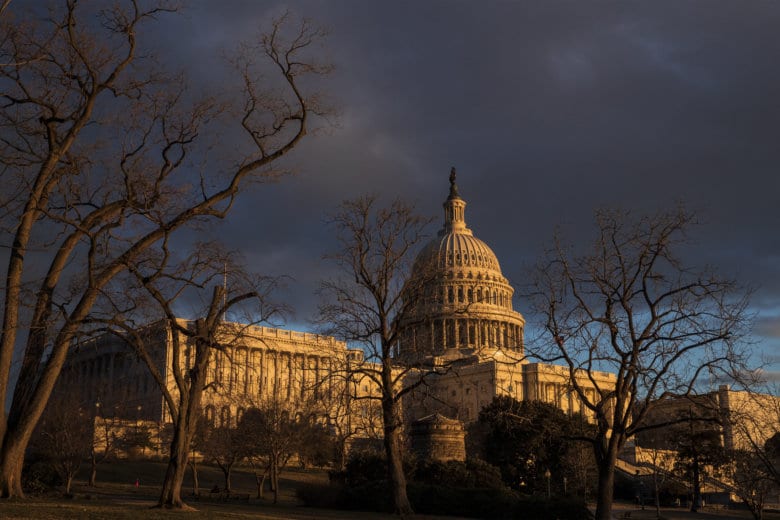
WASHINGTON — The D.C. region was hit hard by the longest government shutdown in U.S. history, which came to an end after Congress and President Donald Trump worked out a deal to reopen the government for at least three weeks.
The 35-day shutdown cost the local economy $1.6 billion, according to Stephen Fuller, a regional economist with George Mason University.
“The impacts are widespread,” Fuller said. “The cost can be measured by the number of jobs lost and the jobs that didn’t receive payment.”
According to Fuller, there were 145,000 federal employees and more than 100,000 federal contractors in the area who missed their paychecks during the shutdown.
“There were another 100,000 other workers, restaurant workers and retail workers, in and around federal enclaves that didn’t work,” he said. “Many of them were minimum wage workers who lost a month’s worth of work.”
The region’s growth rate for 2019, which was projected to be around 2.9 percent, is now expected to take a significant hit.
It could go down to 2.7 percent, Fuller predicted.
“That is considerable underperformance for the potential of the economy,” he said. “That can be blamed on the shutdown.”
In addition to the financial damage, Fuller said the “brand” of the area has been tarnished.
“Who would want to work in Washington now?” he asked. “More federal workers will probably leave their jobs and move to other jobs outside of the region after this experience.”
A bipartisan committee of House and Senate lawmakers is expected to consider border spending as part of the legislative process to keep the government open past a Feb. 15 deadline for a budget agreement.
President Trump doesn’t think the negotiators will strike a deal that he’d accept. He pledges to build a wall anyway using his executive powers to declare a national emergency if necessary.
The Associated Press contributed to this report.









